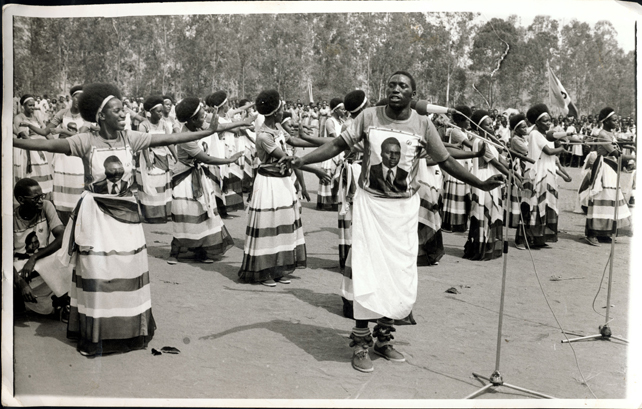
|
The Kivumu site is located in Western Province. Click on the image for a slideshow of photographs. All photographs © 2002-2008 Jens Meierhenrich except the Main Photograph and Photograph 1 © Kigali Memorial Centre. |

|
The Kivumu site is located in Western Province. Click on the image for a slideshow of photographs. All photographs © 2002-2008 Jens Meierhenrich except the Main Photograph and Photograph 1 © Kigali Memorial Centre. |
On December 2, 2008, Simon Bikindi, pop singer, was found guilty of direct and public incitement to commit genocide. The place was Arusha, Tanzania, the court sitting in judgment the United Nations’ International Criminal Tribunal for Rwanda, or ICTR. The sole acts underlying Bikindi’s conviction revolve around his use of a public address system on the road between Kivumu and Kayove in June 1994. There, two witnesses—whose identities the ICTR concealed with the initials AKK and AKJ—saw Bikindi operate a vehicle outfitted with loudspeakers as part of a convoy of buses ferrying Interahamwe militia to a political rally in Kayove.
Blaring over the speakers were Bikindi’s popular and incendiary tunes, intermittently complemented by live commentary from the singer himself. Here is a sample: “You sons of Sebahinzi, who are the majority, I am speaking to you, you know that the Tutsi are the minority. Rise up and look everywhere possible and do not spare anybody.”
On the way back from Kayove, Bikindi, perhaps wondering what results his earlier call to arms had netted, inquired into the progress of the genocidal campaign in this part of Gisenyi prefecture: “Have you killed the Tutsis here?”
The drumbeat of hatred was steady, Bikindi’s message driven home with utmost patience, for as Witness AKJ recalled, the singer’s convoy was moving so slowly, it threw up no dust on the bone-dry road of dirt.
By the side of the very same road down which Bikindi’s convoy traveled some fifteen years ago, today there are modest memorials at both Kivumu and Kayove. Jeanne (not her real name), a survivor, attends to Kivumu, aided, when they are not away for school, by a handful of orphans whose parents perished in the genocide. This site of memory is enclosed by a low-level wall retrofitted with barbed wire, the latter a means to keep out those intent on wrecking the memory of 1994.
And intent, apparently, there is. Physical remains, we are told, occasionally are dug up, stolen, hidden—a crude form of genocide denial.
Copyright © 2010 Jens Meierhenrich. All rights reserved.